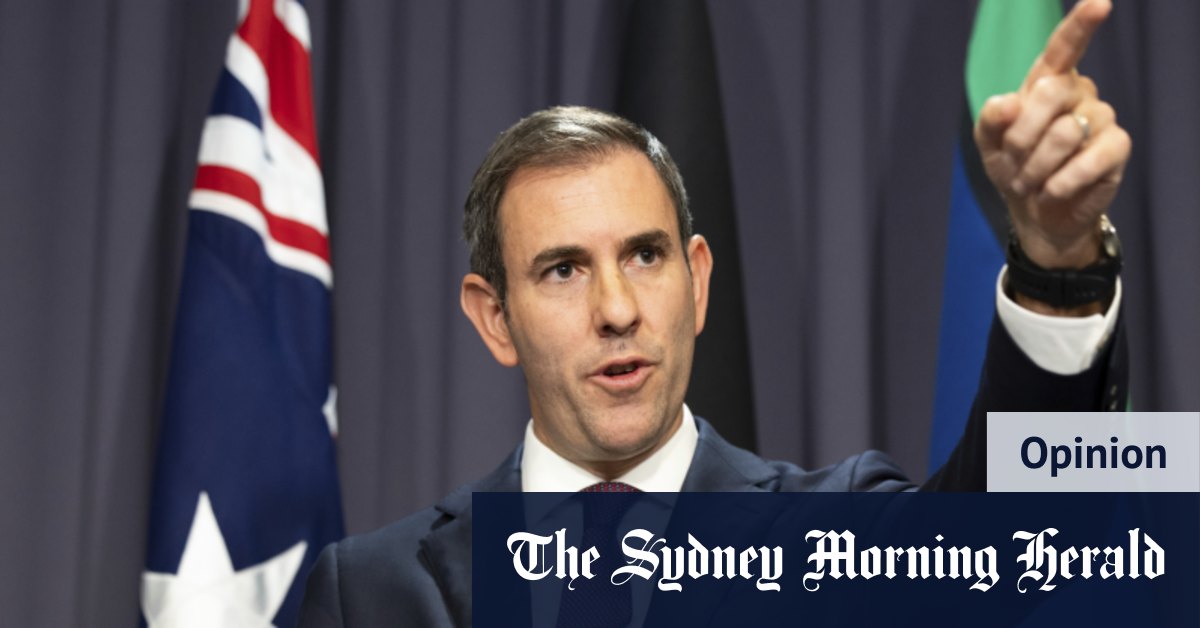If there is one thing Treasurer Jim Chalmers hates, it’s neoliberalism. Which is why it might come as a surprise to some that in his economic statement to parliament this week, he showed signs of developing into the type of treasurer the Australian Liberal Party has yearned to produce since Peter Costello.
Naturally, nobody pays too much attention to what politicians say while they’re in opposition. Communications from exile are, of necessity, chiefly directed at colleagues. But these notes from the political underground can reveal a lot about what is going to happen once the pale creatures of the shadow ministries unfurl as they assume power.

Labor treasurer Jim Chalmers. Credit:alex ellinghausen
During the bitter years, Chalmers laid out the ideas that would inform his current role. Neoliberalism is broken, he told the progressive Australia Institute. But the answer to neoliberalism is not permanent big-state socialism, he argued in The Write Stuffa 2020 book of essays penned by “voices of unity on Labor’s future”.
There are few Coalition politicians who would disagree with either of those statements. Conservatism has been moving away from neoliberalism because its ultimate logic led away from community and tradition, removed the borders of the nation state, and sent the individual into the competitive world, naked and loveless. Brexit and other right-wing populist movements were the reaction of the right against the doctrinaire “ism” which came to sum up laissez-faire excesses.
But, like Chalmers, most conservatives don’t see the answer to neoliberalism in yet another “ism” – the socialism of the big state. That is not just a philosophical stance; a good chunk of the conservative/liberal drift away from the former government at the last election was a result of the perception that prime minister Scott Morrison and treasurer Josh Frydenberg had become addicted to bribing the electorate with handouts and expanding government.
While Chalmers had no choice but to go along with the handouts in the lead-up to the election, lest the Australian public vote to remain attached to the taxpayer teat, he signaled then, as he is signaling strongly now, that a weaning is imminent .
loading
Chalmers’ challenge since the election has been to prepare Australia for the fiscal restraint he knows is necessary in a way that won’t leave Labor voters with buyer’s remorse. Upholding tradition, he has discovered a “fiscal black hole”. New governments always find these and they are always used to explain why election commitments will have to be modified or delayed. But in Chalmers’ case there really is one.
It is moot that the “Liberal’s trillion dollars of debt” was run up with the support of Labor during the pandemic – the truth is it exists and Chalmers is the kind of guy who believes it’s a problem. So he has committed to addressing “waste and waste” (hint: these are endemic to governments and unlikely to yield the dividends he will ultimately claim they have) and, more importantly, he is “being upfront with the Australian people”.
